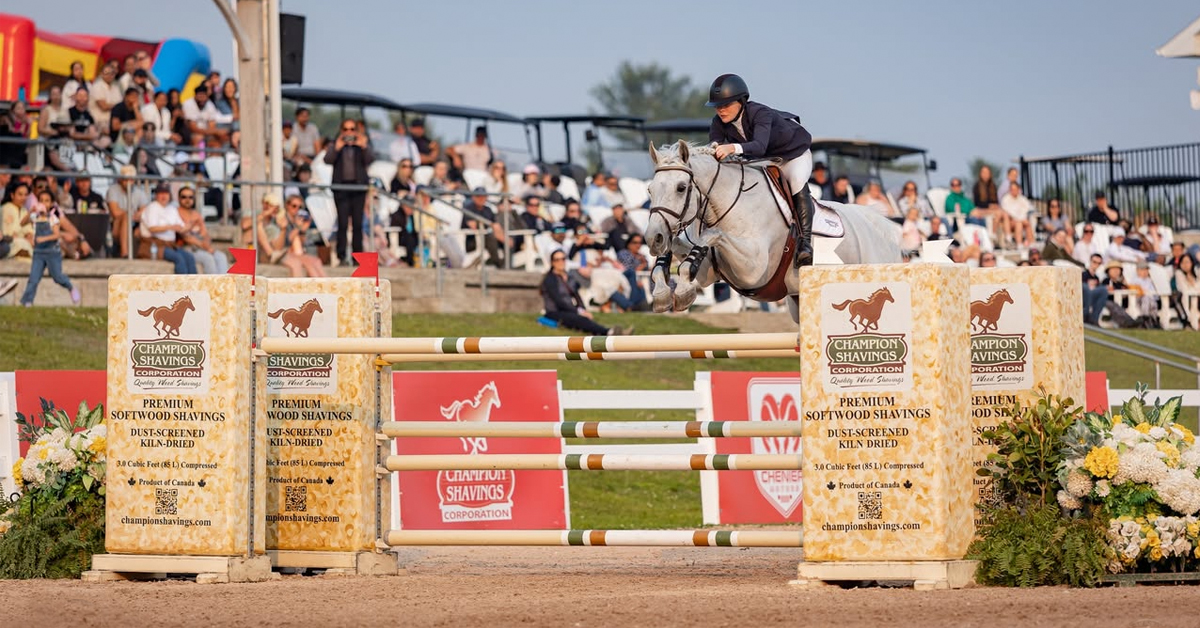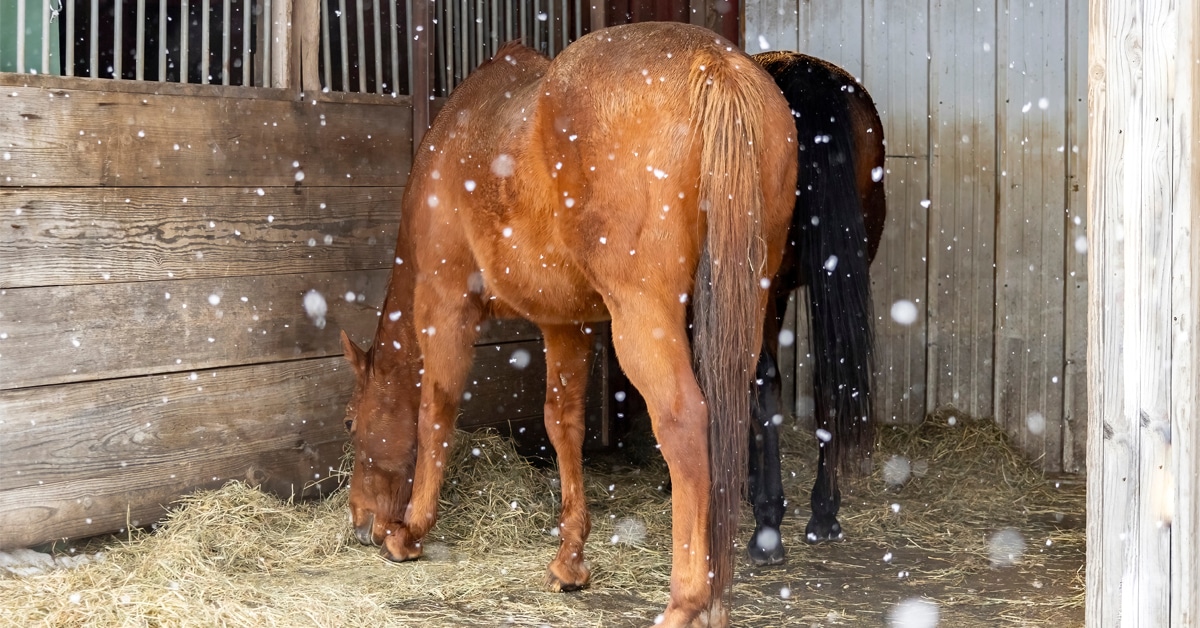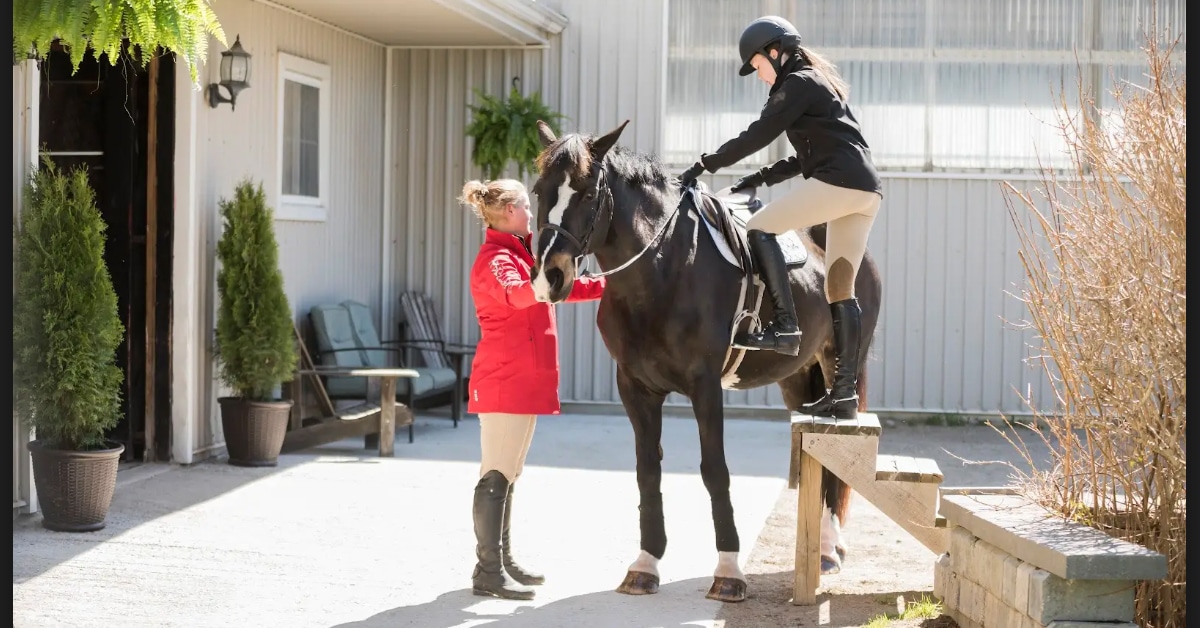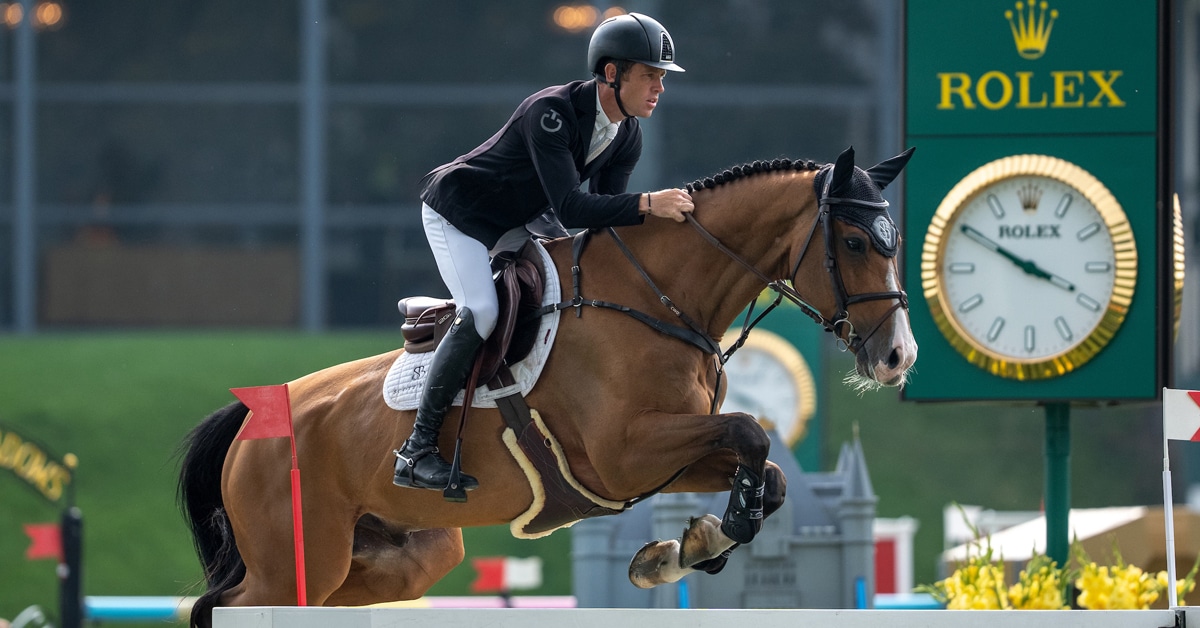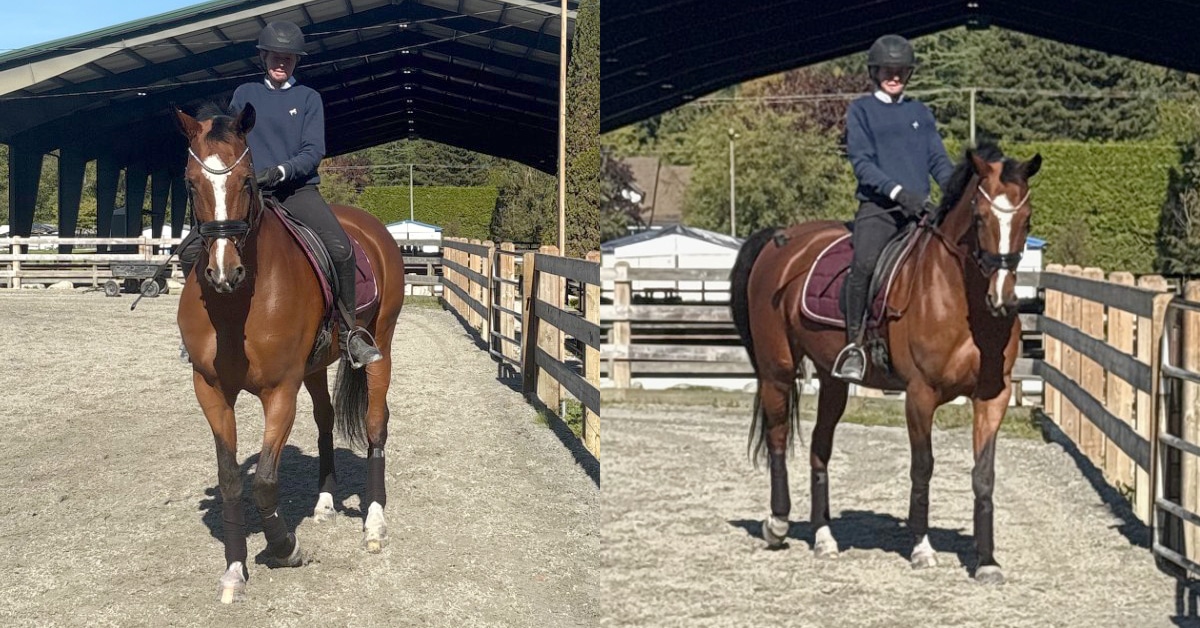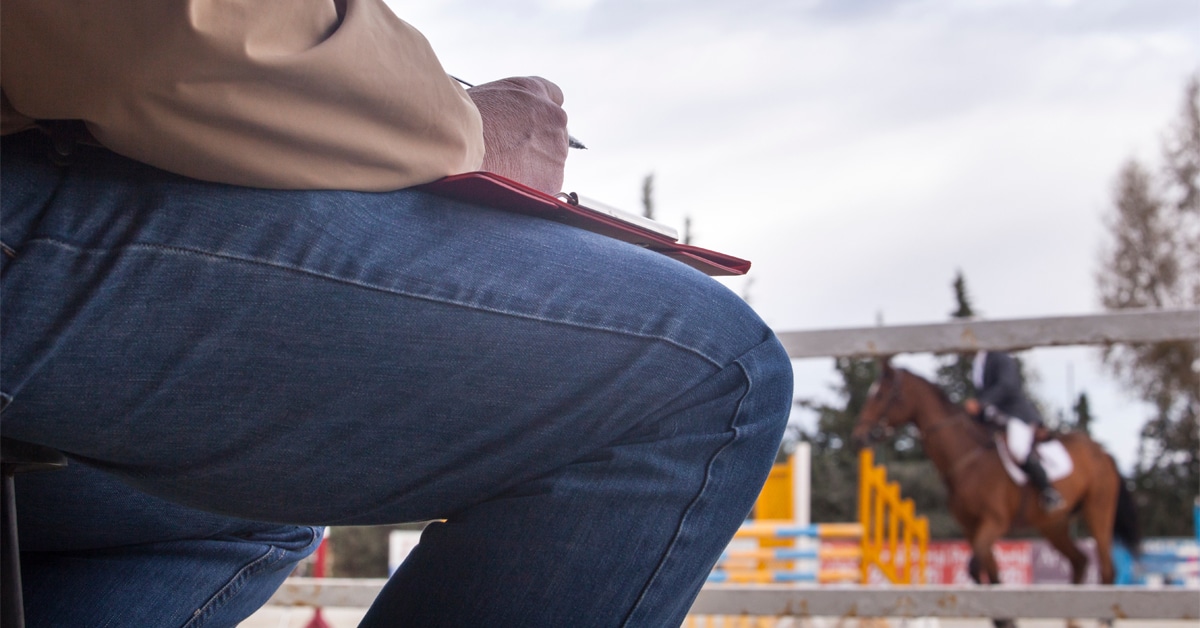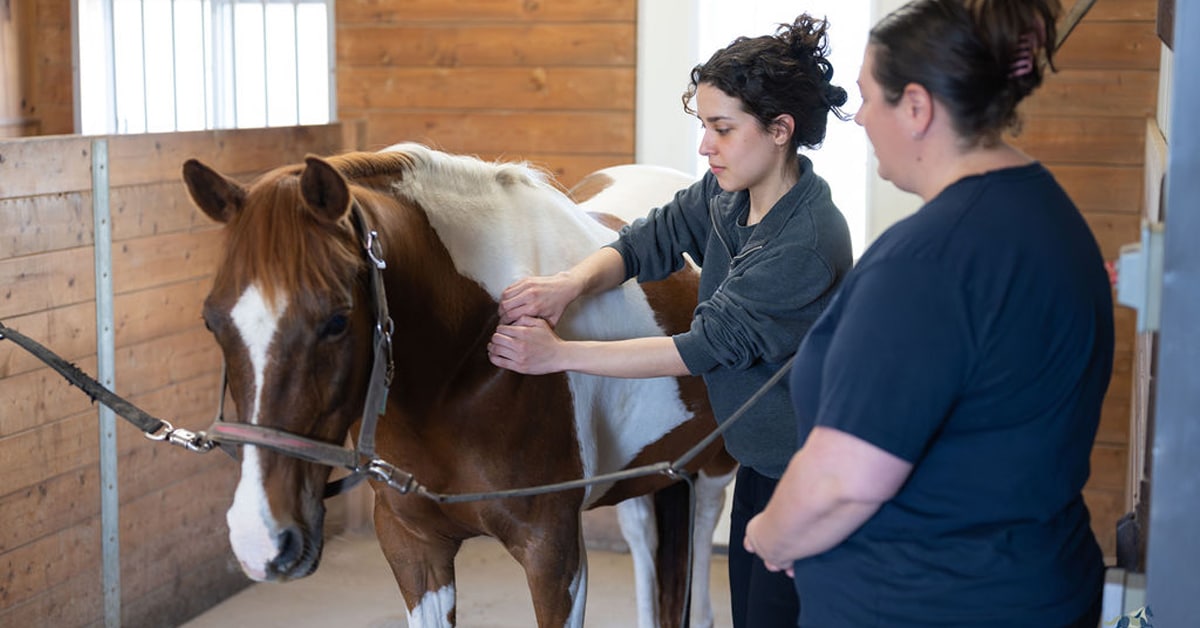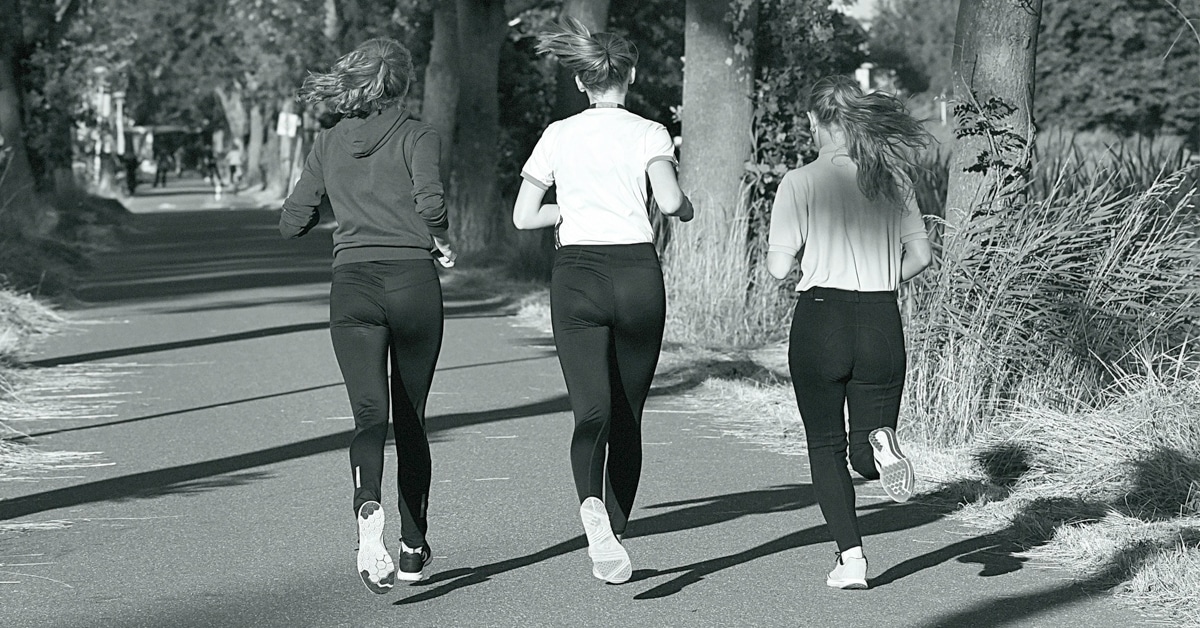Mindful riding can be defined as being fully engaged in the present moment, in the experience of communicating with your horse. It has the quality of being open to what is happening, actively taking in information without judgement. It is the essence of horse and rider engagement.
Unfortunately, we often don’t appreciate mindfulness or even know what it is until we become aware of the costs mindless riding can bring. So, are you guilty of mindless riding?
You Cruise on Autopilot
You do the same warm-up every time, regardless of whether it seems to help or not. You follow the same routines without question. Example: “Why do you always lunge your horse before a lesson? He’s the quietest guy.” You: “I don’t know. Somebody once told me it was a good idea.” Your next private thought: “Why do I do this? I always have to wear spurs to get him going. This is crazy.”
There are things we all do in sport and life for reasons we can’t identify. It shows you just how tricky it can be to even know you are engaged in a mindless habit. Often, we have no idea we are being mindless until someone or something lets us know!
The Work: Start bringing awareness to a few of your habits, off and on the horse. With fresh eyes, observe or be mindful of the sequence of events. Ask yourself why you are doing things the way you are and if you are having the outcome intended. When you crawl inside that habit and experience it, instead of just doing it, chances are you will find some new insight.
Rider Story: Debra was tired of hearing her trainer repeatedly say (yell?) “Sit up!” when she was working on her down transitions. Then it occurred to her: what is ‘sit up’ anyway?
She observed her own interpretation of it while hacking one day. She noticed she raised her shoulders up and stiffened her back, which caused her to lose some contact with the saddle. Debra also felt her horse stiffen, but not slow down. She tried some adjustments, experimenting with a version of ‘sit up’ that had her sinking her weight into the saddle and gently rolling her shoulders back. After a few refinements she was amazed to find a version of this instruction that her horse was responsive to, and the next lesson there was no yelling and a happy coach.
You Tend to be “Judgy”
We rate things as good or bad. Yes, we all judge, maybe even more so now thanks to social media. She is a better rider than me, but mean. I am nice, but not as talented. He always dominates his horse, this is bad. That guy is a pushover, also bad.
Of course, most things, especially people, are not good or bad. And being mindless about our judgements can have us living our lives according to distorted rules of self and other values that are limiting, to say the least.
The Work: This one is hard. Watch your thoughts for a time and strive to become more aware of your judging mind. Write down things you notice. Warning: this is the uncomfortable, and maybe even painful part; you may end up feeling like the Mean Queen/King of the Judgertons or you may realize just how nasty you can be toward yourself. Its okay; you are not a horrible person. Humans all judge as part of trying to find our place in the world, but when we then repeat these judgements mindlessly we can hurt ourselves and stall our rider development.
Rider Story: Dean knew he had a lot of judgements running through his head daily. When he slowed down his thoughts and put them up on an imaginary screen in his mind, he was horrified, especially about the recurring, nasty judgements he hurled at himself, “You are not a natural rider. Look at her, she is getting results and you are not.” Dean worked on being more mindful of his thoughts and how often he was applying the “I am not a natural rider” label to himself. He also noticed that what followed from those thoughts was hesitancy and passivity in his ride.
Dean felt elated that he could finally connect his thoughts to his feelings to his riding behaviours and see how he had been stuck. It was hard, but he worked on being more mindful of when that judgement came up, and instead of letting the same action follow it, he did something different. He brought his attention back to the present by talking out loud about his experience. “I can feel the rhythm of my horse underneath me and hear his hooves connecting with the dirt.” He directed his attention to what he was doing instead of tracking whether he may be better or worse than someone else, and his effectiveness improved.
Your horse is irritated, and/or acting out
Think about how annoyed you are when you can tell someone is not listening to you but rather busy forming their own rebuttal, or even thinking about what to have for dinner. Now think about how many times you “leave” the conversation during the course of a ride. Yes, horses know when you are not tuned into them.
The Work: A simple way to start to tune into your horse is to “take a trip through your senses” with them. When you arrive at the barn, ask yourself what do you SEE about them today? How do they FEEL to your touch, noticing what response(s) you receive. What do you HEAR: breathing, a nicker. What do you SMELL: pleasant or unpleasant! What can you TASTE? This may just be the taste in your mouth presently or the “taste” of the air.
Rider Story: Heather uses her tack-up time as a starting point for connecting with her equine partner. She takes her time going through the process, being mindful of what she observes about her horse, and herself. She says of her tack-up routine, “By the end of it, I feel I know where he is at today, his mood. I also feel it is possible to shift myself to align better with him, or sometimes he does that for me. Either way, it makes for a better ride.”
We all are guilty of mindless riding from time to time, but we have the capacity to learn to be more mindful. Trust me, your horse will thank you.
The Latest
